Phase II is now closed. Results will be announced in March.
2025 Tools Competition
Phase II of the 2025 Tools Competition is now closed. Stay tuned for:
Winner Announcement: Summer 2025
Next Cycle Launching: Fall 2025
2025 Tools Competition

Competitive proposals will demonstrate a commitment to learning engineering. Tools should facilitate continuous data collection in order to drive timely and effective interventions, and support research insights on factors affecting outcomes for diverse student populations and learning conditions.
Tools should target K-12 learners, educators, or parents and families as the primary user group.
Competitors worldwide are invited to submit (see the official rules for any restrictions). We welcome proposals from teams or individuals from all backgrounds, including edtech companies, researchers/universities, educators, or students (undergraduate or graduate).
Based on the most pressing needs in learning and learning technologies, a subset of prizes will be reserved for for proposals that:
While the Tools Competition has different tracks and priorities from year to year, the past winning tools below are examples of what could be competitive.

Tools Competition judges play a critical role in selecting Tools Competition Winners and bring expertise spanning philanthropy, research, industry, and education. Judges will hear virtual pitches from finalists in Phase III of the competition.

Edtech and AI Lead
Gates Foundation - Global Education Team
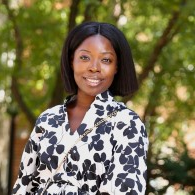
Research Director
The Learning Agency
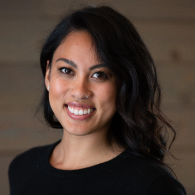
Philanthropy and Partnerships Manager
Atlassian Foundation
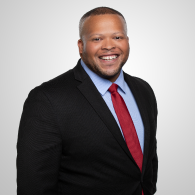
Director, Strategic Initiative
Walmart & The Walmart Foundation
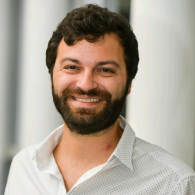
Innovation and Technology Director
Lemann Foundation
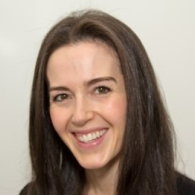
Executive Director and Education Program Director
Robertson Foundation
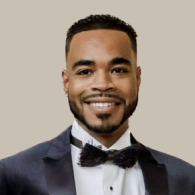
Director, K-12 Education
Valhalla Foundation
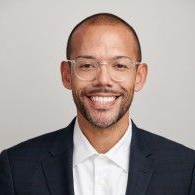
Vice President & Head of Grantmaking
Siegel Family Endowment
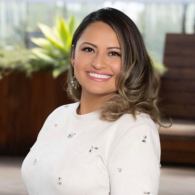
Chief Technology Community Officer
Kapor Foundation

Chief Executive Officer
IDP Foundation, Inc

President
Renaissance Philanthropy
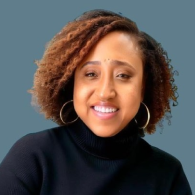
Programme Officer: APET
AUDA-NEPAD

Director, Learning Differences
Oak Foundation
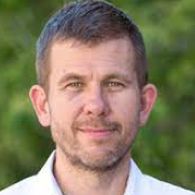
Co-Director, Center for Learning and Development
SRI Education
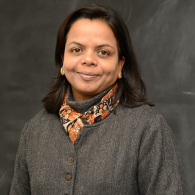
Project Director, EdTech
Central Square Foundation
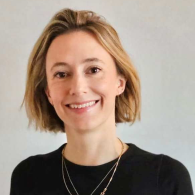
Senior Advisor
Jacobs Foundation
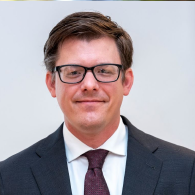
CTO
LEVI
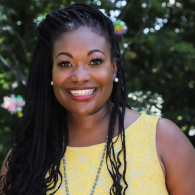
Senior Vice President, Head of Programs
Omidyar Network
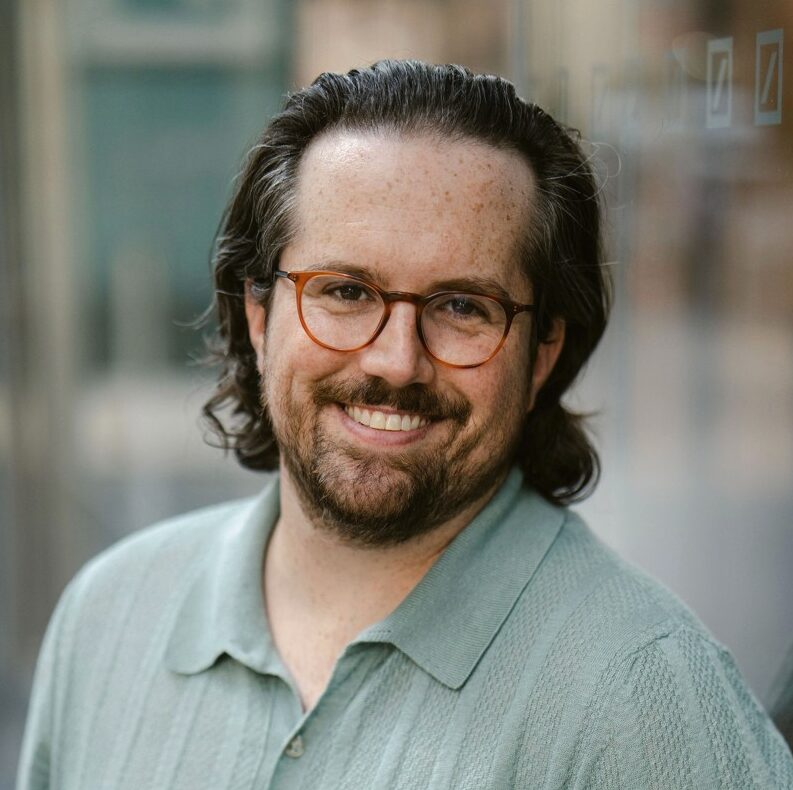
Portfolio Manager, Education
One8 Foundation
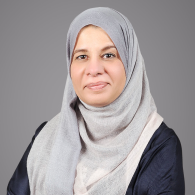
Global Education Policy Lead
Bill & Melinda Gates Foundation

Professor and CEO
University of Stavanger and WiKIT
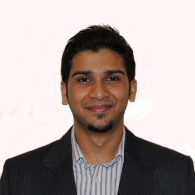
Program Design and Organizational Development
Consultant
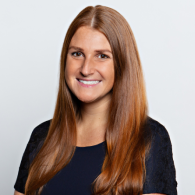
Program Officer
Walton Family Foundation
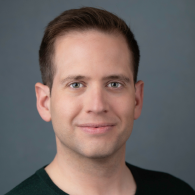
Portfolio Manager, Innovative Schools
Overdeck Family Foundation

Assistant Professor
University of Minnesota

Strategy Manager
JBJ Foundation

Program Manager, South Africa
Michael & Susan Dell Foundation

Senior Program Officer
Bill & Melinda Gates Foundation
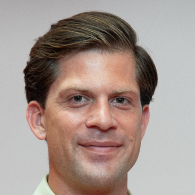
Director, Strategy Lead – The LEGO Foundation
The LEGO Foundation

Director, Education
Lemann Foundation

VP of User Growth
Amplify
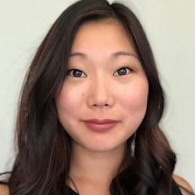
Associate Professor
Georgia State University
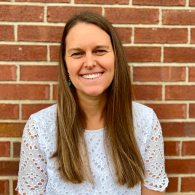
Chief Impact Officer
Digital Harbor Foundation

Professor
Ateneo de Manila University

Program Officer
Charles and Helen Schwab Foundation
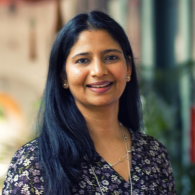
CEO
Octava Foundation
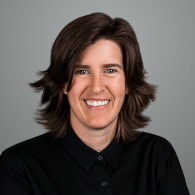
Partner
NewSchools Venture Fund
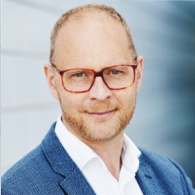
Head of Educational Impact
LEGO Education

Edtech Scout
Prevail Fund

Executive Director
Telles Foundation
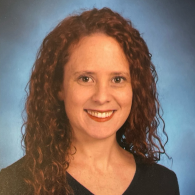
Educator
Danvers Public Schools

Principal
VélezReyes+
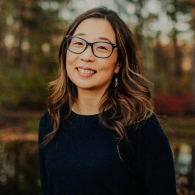
CEO
Long Life Learning Strategies
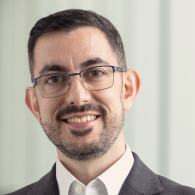
AI Lead
Purposeful Ventures

Senior Fellow
Institute of Education Sciences, U.S. Department of Education
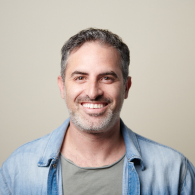
Co-Founder/CTO Auth0
Portal Bosque
When submitting a proposal, competitors must select the relevant prize level based on the size and scale of their tool. Proposals at all prize levels should detail how the proposed tool will solve a defined problem, rather than focus on past achievements.

These prizes are designed for early-stage competitors.

These prizes are designed for competitors with a tool with some users and scale.
Learning Engineering Requirement: Teams must include a plan to support learning science research in their Phase II proposal. Learn More.

These prizes are designed for advanced competitors with an established tool.
Learning Engineering Requirement: Teams must include a plan to support learning science research in their Phase II proposal. Learn More.
Novelty of the tool
and technology
Potential impact and likelihood to
improve learning
Attention to equity to support learning of historically marginalized populations
Demand from learners, families, and educators
Ability to support
learning engineering
Ability to scale to additional users and/or domains
The Tools Competition funds edtech tools and technologies that support learning outcomes and can contribute to learning science research.
Eligible tools have the potential to generate novel learning data that researchers can study to better understand learning at scale. This may include an app, software, algorithm, dataset, or other digital technology that facilitates or supports continuous data collection and has the potential to scale at minimal cost.
Please note that this definition is not exhaustive. As technology continues to develop and innovations are created globally, other tool concepts may also be competitive.
Not sure your tool is eligible? Explore winning tools from previous years.
Competitors submit an abstract describing the concept for their tool and responding to the evaluation criteria.
Competitors develop a proposal and budget detailing their tool and its technology and responding in detail to the evaluation criteria. Rubrics will be posted when Phase II opens.
Finalists pitch before a panel of expert judges.
Winners are announced and receive the first installment of their prize.
Winners track impact metrics in the year following their prize and receive guidance to set up internal evaluation processes.
Winners present on their progress to date and receive feedback from other winners and leaders in the field.

Tools that expand access to quality post-secondary learning and broaden connections to career success.

For teams that will prepare and release datasets that can make innovation and research related to education less expensive and more inclusive.

Edtech and AI Lead
Gates Foundation – Global Education Team
With over 15 years of driving impact in global education, I specialize in leveraging technology to transform learning outcomes in underserved communities. Starting my career as a teacher, I combined my expertise in computer engineering and statistics to lead large-scale education programs across South Asia and Sub Saharan Africa.
I have designed and scaled edtech solutions that enhance teaching and learning in low-resource settings, collaborating with governments, global organizations, and leading philanthropies to implement sustainable, high-impact initiatives. My focus is on using innovative technologies to address the most pressing challenges in education and bridge equity gaps for learners worldwide.

Research Director
The Learning Agency
Perpetual brings experience in machine learning, data analytics, and education research. Previously, she was a data analyst for the Office of Evaluation, Research, and Accountability at the School District of Philadelphia. She also served as a research associate at the Center for American Progress and an Emerson Fellow of National Policy for the University of Pennsylvania’s Netter Center for Community Partnerships.
Perpetual was recently selected as one of Worth Magazine’s Worthy 100, a distinction honoring 100 people making an impact across various industries and sectors. She received her undergraduate degree in Philosophy, Politics, and Economics from the University of Pennsylvania and her master’s degree in Computer and Information Technology from the University of Pennsylvania.

Philanthropy and Partnerships Manager

Director, Strategic Initiative
Dr. Marvin Carr is a Director of the Center for Racial Equity, Walmart, Inc. Prior to Walmart, he served as Program Officer for STEM and Community Engagement and later as an Evaluation Officer at the Institute of Museum and Library Services. He has also served as Policy Advisor to the Chief Technology Officer of the United States. Dr. Carr received a bachelor’s degree from Morgan State University, a master’s degree from the University of Maryland, and a Ph.D. from Morgan State University.
He won the Council’s 2023 Outstanding Corporate Philanthropy Leadership Award for his leadership, courage, integrity, and resilience while developing and executing the strategy and portfolio of the criminal justice focus area at Walmart.org’s Center for Racial Equity. He graduated from the Council’s Career Pathways program in 2022.

Innovation and Technology Director
Guilherme Cintra is the Innovation and Technology Director at the Lemann Foundation. He holds a degree in Economics from PUC-RJ and began working in education at the age of 18, teaching mathematics to young people from communities near his university. He fell in love with the field and, after interning at other investment funds, joined Gera, which at the time was fully focused on education. He would later become a partner at the fund. Following the creation of Eleva Educação, he took on the role of director of one of the group’s schools. Subsequently, he managed a network of Eleva schools. He was a co-founder and strategy leader of Pátio, Eleva Educação’s New Business unit (currently Grupo Salta). He also worked as the Coordinator of Innovation and Technology at the Municipal Department of Education in Rio de Janeiro, where he led the creation of the Experimental Technology Gyms, the Carioca Math Olympics, and the development of software for monitoring attendance, teacher allocation, and infrastructure management, in addition to initiatives to increase school connectivity in the city. Today, he seeks to scale educational quality across different states and municipalities in Brazil through the use of technology.

Executive Director and Education Program Director
Robertson Foundation
Kelsey holds degrees from Columbia University as well as an MSc and a DPhil from the University of Oxford. She previously worked for Ark, an international children’s charity, and served as the Director of Evaluation and Strategy for the NYC Foundation for Computer Science Education. Kelsey first joined the Robertson Foundation in 2010 and returned after completing her DPhil as an education research consultant. In 2017, she became the Education Program Director, and in 2018, the Executive Director. Kelsey was born and raised in New York City and lives in Cape Town, South Africa.

Director, K-12 Education
Robert Crosby is the Director of K-12 Education at the Valhalla Foundation where he leads the Effective Educators portfolio, making and managing investments that fuel innovation, empower educators, and improve teaching and learning—particularly for our nation’s most marginalized students. He is especially focused on preparing educators for the transformative role of AI in the classroom. Robert has dedicated his career to unlocking educational pathways for millions of students who have historically faced barriers to access, previously holding roles such as the Global K-12 Program & Product Lead at Amazon and the Managing Director of Programs at Flamboyan Foundation. Robert holds an MBA from the University of Virginia, an MEd in Early Childhood Education from George Mason University, and a Bachelor’s of Journalism in Strategic Communication from the University of Missouri-Columbia.

Vice President & Head of Grantmaking
Siegel Family Endowment
Joshua Elder is the Vice President & Head of Grantmaking at Siegel Family Endowment, which explores the impact of technology on society across learning, infrastructure, and workforce. Joshua oversees strategic investments and partnerships across each of SFE’s portfolio areas. Prior to SFE, Joshua was Director of Strategic Initiatives at CSforALL, one of SFE’s partner organizations, where he led strategic efforts to help build the capacity of school districts and other education agencies to provide computer science education to all students. Prior to that, Joshua spent 10+ years in domestic and international education with a focus on science education, instructional leadership, and pedagogy. Joshua is a co-founder of a network of low-cost private schools operating in South Africa and Kenya. Joshua has a Master’s in Public Affairs from Columbia University’s School of International and Public Affairs, an M.Ed. from Virginia Commonwealth University, and a BS from Longwood University.

Chief Technology Community Officer
Lili Gangas is the Chief Technology Community Officer at the Kapor Foundation, a private foundation at the intersection of technology and racial justice, providing research and thought leadership, operating programs, supporting strategic partnerships and investments to increase diversity across the tech ecosystem–from K-12 education through entrepreneurship and venture capital – aiming to level the playing field in tech. Lili co-leads the Kapor Center’s Equitable Tech Policy Initiative with a focus on inclusive technology policy with special interests in closing digital divide, scaling new tech workforce models, advocating for responsible emerging technology such as AI as well as providing foundational support across civic engagement issues and tech enablement of civic organizations. Lili’s tech fellowships include Omidyar Network’s Digital Luminaries and New America CA focused on tech for good and currently serves on the FCC’s Consumer Advisory Committee.
Before coming to the Kapor Center, Lili was an Associate Principal at Accenture Technology Labs, Sr. Associate at Booz Allen, Sr Multi-Disciplined Software Engineer at Raytheon Space and Airborne Systems. Lili holds an MBA from New York University Stern School of Business, a B.S. in Electrical Engineering from the University of Southern California.
Lili is also the co-founder of 2x Emmy NorCal award winning LTXConnect.org – a platform elevating rising Latinx/e voices at the intersection of culture, innovation, inclusion, and opportunity, through partnerships, programs, and technology.

Corina Gardner joined IDPF in 2020, and as CEO, she’s responsible for expanding the Foundation’s work funding partner organizations, who strengthen and advocate for the affordable non-state education sector.
Before IDPF, her career focused on international development, specializing in global health, technology, and gender across Africa, India and the Caucasus. She served as Director of Global Strategy for the Nike Foundation’s Girl Effect, which built youth brands and mobile research tools to empower girls. Here, she guided offices in Ethiopia, Malawi, Nigeria, and Rwanda, and facilitated strategic partnerships with multinationals and non-profits like Unilever and UNICEF.
Corina brings a wealth of experience from her work on global health within numerous government agencies, including USAID and the U.S. Department of State, where she acted as liaison to the Global Fund to Fight HIV/AIDS, Tuberculosis, and Malaria.
She’s been a guest lecturer at MIT’s Sloan School of Management, Georgetown University’s McDonough School of Business, Royal Holloway University of London, London School of Economics, and University of Cambridge’s Judge Business School.
With an undergraduate degree from the University of California Berkeley, Corina received her MBA from the University of Cambridge’s Judge Business School (class of 2009). She’s based in London, UK.

Kumar has helped to shape the science and tech landscape for almost two decades. Working with Eric Schmidt, he helped design and launch moonshot initiatives in education, provided early support to game-changing ideas and pioneers, and built ongoing multi-donor and multi-sector collaboratives.
Prior to that, he helped set budget and policy priorities for the Obama Administration as part of the White House Office of Science and Technology Policy, and drove progress on topics ranging from education and workforce issues, biotechnology, entrepreneurship, space, advanced manufacturing, broadband, nanotechnology, behavioral sciences, digital media, incentive prizes, and broader innovation policy.
In particular, he led the Obama Administration’s efforts to bolster science, technology, engineering and math (STEM) education, including development of major budget and policy initiatives in the State of the Union to train 100,000 excellent STEM teachers and bring computer science to all K-12 students, development of the Educate to Innovate campaign with over $1 billion in in-kind and philanthropic investment, and creation of iconic events such as the White House Science Fair.
Prior to his time in government, Kumar worked on behalf of parents and children seeking educational reform as an education lawyer and advocate. Kumar received a B.A. from Dartmouth College and a law degree from Yale Law School.

Programme Officer: APET
AUDA-NEPAD
Barbara Glover is a dedicated advocate for science, technology, and innovation in Africa. With a background in innovation and emerging technologies and extensive experience in research and policy, Dr. Glover currently serves as the Programme Manager of the African Union High-Level Panel on Emerging Technologies at the African Union Development Agency-NEPAD (AUDA-NEPAD). In this role, she works towards harnessing scientific advancements for the sustainable development of the continent. Dr. Glover’s passion lies in promoting collaborative efforts that leverage technology for positive impact across diverse sectors.
Her current work builds upon experiences working since 2016 at AUDA-NEPAD in aiding African countries identify, harness and implement emerging technologies for Africa’s socioeconomic developement. In this role, she supports conducting research and analyzing data on topical issues such as AI, conducting evidence-based analysis of STI, drafting policy recommendations and guidelines for deploying emerging technologies, and contributing to the development and implementation of capacity building programs in science, technology, and innovation for building a culture of innovation among the youth.

Heather Graham is Program Director at the Oak Foundation for its Learning Differences Program. Oak Foundation commits its resources to address issues of global, social and environmental concern. The Learning Differences Program is committed to building a world in which schools unlock the creativity and power of every young person and equip them to shape more just and equitable communities. The program partners with not-for-profit organizations that improve education for all students, particularly those who are furthest from opportunity. Previously, Heather served as a Principal with Education First and a Program Officer with the Bill & Melinda Gates Foundation.
In those roles she provided strategic and business planning, operations and governance support to education non-profits and developed coalitions with national, regional and global foundations, non-profits and government. Prior to joining the Gates Foundation, Heather served as a Vice President with Teach For America, a White House Fellow with the United States government and a Program Associate with the Annie E. Casey Foundation. Heather spent a year in Chengdu, China as a Henry Luce Scholar and she began her career as a middle school teacher in the South Bronx with Teach For America. Heather earned her master’s degree in Public Affairs from Princeton University and her bachelor’s degree from the University of Wisconsin, Madison. She currently lives in Durham, North Carolina.

President
SRI Education
Todd Grindal, EdD, is the President of SRI Education, where he leads one of the nation’s largest independent education research organizations working at the intersection of innovation, rigorous evaluation, and scaling what works. From 2021–2025, he taught at the Harvard Graduate School of Education, where he focused on helping future educators translate research evidence into classroom practice. A former classroom teacher and school leader, he has led large-scale federally funded research and evaluation efforts and worked with public agencies, philanthropies, and venture-backed companies to ensure educational innovations are scientifically rigorous and built to scale.

Project Director, EdTech
Central Square Foundation
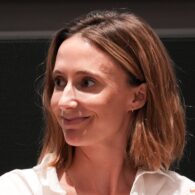
CEO & Senior Adviser
EdTechnical & Jacobs Foundation
Libby is CEO of EdTechnical and advises investors, foundations, and England’s Department for Education on AI and evidence in education. A former teacher turned edtech investor, she has 15+ years spanning both sides of the table: building and scaling education organisations and funding them. EdTechnical leads research and early-stage investing to find and back what actually works in education. Libby has published on AI and education in leading academic journals and holds degrees from the University of Oxford, London School of Economics and King’s College London.

Dan founded and led learning science technologies and academic-research partnerships at Infinite Campus, the education data management system for 8 million K-12 students in 2300 school districts and 7 state departments of education. He co-created Infinite Campus’s machine-learned school dropout early warning system and education research infrastructure. Dan also previously created and sold a personalized college recommender system, which won industry, philanthropic, and U.S. Department of Education awards.
Dan holds an M.S. in computer science from the University of Minnesota with a focus on recommender and sociotechnical systems, and an undergraduate degree from Valparaiso University.

Senior Vice President, Head of Programs
Omidyar Network
Omidyar Network is a social change venture that works to bring about structural changes that will fundamentally shift the systems that govern our lives. As Omidyar Network’s first Senior Vice President of Programs, Jawando oversees the global mission of the program teams of its three Impact Themes: Responsible Technology, Reimagining Capitalism, and Pluralism as Omidyar Network attempts to tackle the biggest, most intractable challenges facing the planet in the decades ahead. Before joining Omidyar Network, Michele Jawando was the Head of US Strategic Engagement and Public Policy Partnerships at Google. As an executive leader and senior member of their Public Policy team, she was responsible for developing strategic relationships and partnerships with elected officials, think tanks, nonprofits, and thought leaders across the US. In that role, she helped to direct over $80 million of resources on issues related to elections, cybersecurity, gender equity, disability rights, and more. Prior to Google, Michele Jawando served as Vice President at the Center for American Progress, a think tank dedicated to improving the lives of Americans through progressive ideas and action. Building on the achievements of progressive pioneers such as Teddy Roosevelt and Martin Luther King, her work at CAP addressed 21st century challenges such as national security, climate, race and gender equity, economic growth and opportunity, civic participation, and health care. Michele Jawando has also served as General Counsel and Senior Advisor to United States Senator Kirsten Gillibrand (D-NY) and Foreign Relations Chair, Congressman Gregory Meeks, where she spearheaded bipartisan legislative achievements on behalf of each of the members, including passage of the James Zadroga 9/11 Health and Compensation Act, the Don’t Ask, Don’t Tell Repeal Act ( DADT), and the confirmations of Supreme Court Justices Sonia Sotomayor and Elena Kagan among others. A regular commentator for international and US tv, print and radio, Jawando is an author, serial entrepreneur and afro-tech futurist who believes across our differences we can create and build the future we desire. Attorney Jawando, received her J.D. from the University of North Carolina School of Law and her B.A. from Hampton University. She is the wife of Honorable William Jawando, Esq. of Maryland and the mother of four young children.

Portfolio Manager, Education
One8 Foundation

Chief Executive Officer
World Innovation Summit for Education (WISE)
Dr. Asyia brings over 30 years of experience in education across government, philanthropy, and international development, with a distinguished track record of improving learning outcomes for underserved communities. Before joining Qatar Foundation, she served as the Global Education Policy Lead at the Bill & Melinda Gates Foundation, where she helped create a global edtech and AI portfolio that positively impacted 2.5 million children.
She began her career as a mathematics teacher and teacher coach before moving into leadership roles in the public and private sectors. At PwC, she led the UK government’s $1 billion Girls’ Education Challenge, supporting 1.5 million girls across 17 countries. She has also served in senior roles across three UK Government departments, including as Senior Education Adviser at DFID, Project Director at the Department for Education, and Her Majesty’s Senior Inspector at Ofsted.
Dr. Asyia holds a Master’s in Applied Mathematics from Imperial College London, a Doctorate in Education from University College London, and two PGCEs in mathematics teaching and leadership development. She was awarded an OBE in the Queen’s 2022 New Year’s Honours List for her contributions to girls’ education.

Professor and CEO
University of Stavanger and WiKIT

Program Design and Organizational Development
Consultant
Shashank believes in inspiring lifelong learning, helping individuals persevere through challenges with resilience. He values belief, acceptance, and the importance of practice and reflection for continuous growth.
Over the past decade, he has worked with several non-profit and for-profit organizations focused on learning and education, including Teach For India, The Akanksha Foundation, Reap Benefit, Make a Difference, Open House, Hewlett Packard, Generation, and Kizazi. He has brought program design and organizational development to life by turning visions into actionable strategies, creating pathways to outcomes, and designing impactful learning journeys for diverse teams.
He is passionate about music and movement art forms, and is constantly exploring ways to integrate these into his work to foster holistic growth and well-being.

Program Officer
Walton Family Foundation
Michele is a program officer for the Education Program. The Foundation’s Education Program supports all children in finding their unique path to a life of opportunity and purpose.
Before joining the foundation, Michele was the assistant director of the Institute for Education and Social Policy at New York University, where she conducted research on the contextual factors and ecosystem enablers that support educational success. She began her career as an elementary school teacher.
Michele holds a B.A. in education and human development from Boston College and an M.A. in education policy from George Washington University and a bachelor’s degree.

Portfolio Manager, Innovative Schools
Overdeck Family Foundation
Pete Lavorini leads the Innovative Schools portfolio at Overdeck Family Foundation, which aims to expand access to tech-enabled, student-centered K-9 learning environments. A former 6th grade teacher, Pete has led district-level initiatives for both the New York City Department of Education and Pittsburgh Public Schools and has helped social impact organizations set and operationalize strategy while with The Bridgespan Group.


Strategy Manager
JBJ Foundation
Jani is an expert in social value creation, with over 15 years of experience in improving the effectiveness and impact of organizations delivering value for citizens. He has worked for top-tier management consulting companies, such as McKinsey & Company, and for public sector organizations at the local, national and international levels. While employed at the Tony Blair Institute for Global Change, he worked for three years as a governance advisor for Rwanda’s Ministry of Finance and Economic Planning and Office of the President. At JBJ Foundation, he oversees the Foundation’s education work in Malawi.
Jani’s hometown is Helsinki, Finland, where he has lived in the same neighborhood all his life, except for his years abroad living on four different continents. He holds a Master of Social Sciences degree from Helsinki University.

Program Manager, South Africa
Michael & Susan Dell Foundation
Annie Porter Clark serves as a Program Manager for the Data Driven Education Portfolio at the Michael & Susan Dell Foundation’s African office. In this role, she focuses on harnessing data to enhance educational practices, aiming to improve learning outcomes and drive efficiency in education delivery. Her work is centered on transforming the lives of children through better educational opportunities.
Prior to joining the Dell Foundation, Annie worked as a consultant at McKinsey & Company. and worked in wide-ranging roles within the social impact sector. This includes roles in impact investing at Edge Growth, and positions at Rippleworks Foundation in California, as well as leadership roles at The Room in Nairobi and the African Management Institute.
Annie holds an MBA from the University of California Berkeley with a specialization in Social Sector Leadership.

Senior Program Officer
Bill & Melinda Gates Foundation

Director, Strategy Lead – The LEGO Foundation
The LEGO Foundation
Mathias Rigbolt is the Strategy Lead at The LEGO Foundation, reporting to the CEO, with responsibility for strategy formulation, implementation, and review across the Foundation’s programmes in children’s learning and well-being. In this capacity he has recently developed The LEGO Foundation’s first digital strategy, which will steer the Foundation’s funding to help realize the transformative potential of digital technologies for children’s learning and well-being. Prior to this role, Mathias was a Senior Strategy Manager in KIRKBI, which is the Kirk Kristiansen family’s holding and investment company, that aspires to a future where all children have the opportunity to learn through play. Mathias spent the first part of his career in ReD Associates – a strategy consultancy based in the social sciences – where he was a manager in ReD’s social impact practice.

Director, Education
Lemann Foundation

VP of User Growth
Amplify
Dan Meyer taught high school math to students who didn’t like high school math. He has advocated for better math instruction on CNN, Good Morning America, Everyday With Rachel Ray, and TED.com.
After earning his doctorate from Stanford University in math education, Dan joined Desmos to design Desmos Math, a digital math curriculum that emphasizes social connection and mathematical creativity. Dan now works at Amplify, Inc, as the Vice President of User Growth, where he focuses on teacher efficacy and student learning across Amplify’s suite of curriculum and technology products. He lives in Oakland, CA.

Associate Professor
Georgia State University
Kathryn S. McCarthy is an Associate Professor of Educational Psychology in the Department of Learning Sciences at Georgia State University. Her research explores the higher-order processes involved in learning from content-rich text with emphasis on how these processes vary across disciplines and across learners. She is interested in how we can use technology to study and support learning and how educational technology can be leveraged to make learning more effective and equitable.

Chief Impact Officer
Digital Harbor Foundation
Liz McCreary (she/her) is the Chief Impact Officer at Digital Harbor Foundation. Liz started her career in Baltimore teaching high school social studies to the most incredible students. She then worked for Teach For America’s recruitment team before following her passion for adult education and teacher development to Johns Hopkins University School of Education where she served on the MSEd Program Team until moving abroad to work with Teach For India. Upon returning to the United States, she worked as a Senior Production Manager for the education technology company 2U before reconnecting with change makers in Baltimore and joining the inspiring team at Digital Harbor Foundation. She has a M.A.T. from Johns Hopkins University School of Education and a B.A. from Macalester College.

Professor
Ateneo de Manila University
Maria Mercedes T. Rodrigo is a professor at the Department of Information Systems and Computer Science. She is the head of the Ateneo Laboratory for the Learning Sciences and co0-head of the Ateneo Virtual, Augmented, and Mixed Realty Laboratory. Her research work focuses on artificial intelligence in education, learning analytics, and educational games.
Her current projects include virtual reality games for informal education and the use of LLMs for medical education. She is on the Executive Committee of the Artificial Intelligence Education Society. In 2021, Dr. Rodrigo received the Distinguished Researcher Award from the Asia-Pacific Society for Computers in Education (APSCE) and is President of APSCE.

Sr. Program Officer
Charles and Helen Schwab Foundation
Joe Shook is a Senior Program Officer for the Charles and Helen Schwab Foundation, focusing on the K-12 education grants portfolio. Joe started his career in the classroom as a Teach For America corps member, serving students throughout the Bay Area as a Special Education and General Education Teacher for nearly a decade. Prior to joining CHSF, Joe also served as an adjunct professor, coach, learning experience designer, and educational consultant.

CEO
Octava Foundation
Raman is the CEO of Octava Foundation ,where she stewards the foundation’s investment in Education, Technology in Education and Social Innovation. She’s spent over a decade in supporting social purpose organisations, social innovators and philanthropic institutions and individuals be become effective and evidence informed in solving for complex inequity challenges in learning and livelihoods across diverse contexts.
Before joining Octava, Raman was the Executive Director at Lorinet Foundation, a private family foundation focused on early childhood education and youth employability across South East Asia and Mongolia, where she developed Lorinet’s index Early Childhood Education programme for Mongolia.
Raman holds an MBA from the Robert Gordon University, Aberdeen UK and a BA in Commerce and Accounting from Delhi University.

Partner
NewSchools Venture Fund
Erin Stark, a Partner at NewSchools, leads investments to benefit the 1 in 5 students with learning differences. Her passion for inclusion was inspired by her sister’s disabilities and grew and evolved throughout a 20-year career as a high school special educator in New York City. In her current role, Erin merges her personal and professional expertise to create learning opportunities that have deepened the organization’s proficiency in serving students with learning differences. Erin plays a crucial role in selecting leaders with innovative ideas to support students with learning differences, coordinating with investment teams across the organization and a community board that advises on areas of need and grantmaking.
Before NewSchools, Erin was the Director of Student Support at New Visions for Public Schools, where she led initiatives to improve support for students with disabilities, multilingual learners and developing readers in high school. Her achievements include designing web-based tools, developing professional development series, and managing grants worth $2.5M aimed at enhancing student support. Erin holds certifications as a School Building Leader, in English Language Arts, special education, and literacy intervention.
Erin lives in New Jersey with her wife and daughter and prioritizes spending quality time with her family. She deeply cherishes the values of family, inclusion, and the transformative power of truly equitable and inclusive education.

Head of Educational Impact
LEGO Education
Bo Stjerne Thomsen is the Head of Educational Impact at LEGO Education, where he leads global impact, learning design and content development across international markets. Previously, he served as Vice-President, Chair of Learning through Play, and Global Head of Research at the LEGO Foundation, contributing as an executive leader, global learning expert and shaping the international research and learning agenda.
Bo Stjerne has created innovative education programs for schools, universities, companies and informal learning spaces across more than 30 countries. He has built expert communities, collaborated with leading universities, and advised governments in more than 10 countries, as well as organizations such as the World Economic Forum, OECD, and United Nations.
Known for academic rigor, multidisciplinary collaboration, and fostering innovative partnerships, Bo Stjerne has been a researcher, educator, and advisor at renowned institutions including MIT, Harvard, Cambridge, EPFL, and Tsinghua University.
Trained as an engineer and architect, he has designed educational institutions, performance spaces, and urban neighborhoods on three continents. He has authored over 20 publications on creativity, play, and their role in education, technology, and innovative teaching methods.

Edtech Scout
Prevail Fund
Sameer was previously the co-founder of Global School Leaders and founding ED for Pousaz Philanthropies. He is current responsible for developing the ed-tech strategy for the Prevail Fund, a pooled philanthropic fund focused on improving foundational learning in Africa and South Asia.

Strategy and Grantmaking Director
Telles Foundation
Luiza Toledo is a leader in the education and social impact sectors. With a solid academic foundation, she holds a degree in Psychology from Presbyterian University Mackenzie and a Master’s in Administration from Dom Cabral Foundation.
Throughout her career, Luiza has been at the forefront of initiatives that bridge education, technology, and employability, fostering innovation and social transformation. She previously held leadership roles in HR Institutions for 10 years, before working with education.
As the Executive Director of Telles Foundation, Luiza leads the organization’s mission to design and implement innovative educational programs, creating pathways for young talent to thrive in STEM careers.

Educator
Danvers Public Schools
Denise is an experienced elementary math and special educator passionate about making education accessible and effective for all learners. Throughout her career, she has held various roles in schools and education non-profit organizations, allowing her to make a broad impact in the field of education.
Outside of the classroom, Denise has worked as a curriculum developer, designing innovative materials to enhance student learning, led professional development for educators, empowering them with strategies to improve instruction, and partnered with districts to support their implementation of educational technology tools to enrich learning opportunities for students. She currently works in a school district supporting K-5 students with their math learning.

Principal
VélezReyes+
Daniel is currently a Principal at VélezReyes+, a Latin America focused philanthropic platform that seeks to transform Latin America into a region with equal access to opportunities for all, founded in 2021 by David Vélez (Founder of Nubank, the largest digital bank in the world) and his wife Mariel Reyes Milk. At VélezReyes+ he co-leads the firm’s education strategy, and leads its private leadership investments.
Daniel honed his investing experience in the education space, working as a Fellow for Owl Ventures, the largest EdTech-focused VC fund in the world, and as an investor at Stanford GSB’s Impact Fund Education Team, having led both funds’ first investments in Latin America. He was also a Partner at Appian Education Ventures, an education-focused investment fund and venture builder, where he led its venture building and EdTech investment initiatives. Daniel has worked with and advised multiple education companies and NGO’s, including Eleva Educação, Latin American Leadership Academy (LALA), UBits, U-Planner, Hunty, BUO and Alianza Educativa.
Daniel earned his bachelor of science in economics and finance, Magna Cum Laude, from Bentley University’s honors program, and completed an MBA & MA in Education joint-degree at Stanford University, where he was an Arbuckle Leadership Fellow. He’s currently a board member at Crack the Code (K-12 Computer Science EdTech) and Stanford University’s Graduate School of Education’s Alumni Board.

CEO
Long Life Learning Strategies
Dr. Michelle Weise (pronounced W-ice) leads Long Life Learning Strategies, a consulting firm for organizations seeking to prepare working-age adults for a longer future of work. Her award-winning book, Long Life Learning: Preparing for Jobs that Don’t Even Exist Yet, was recognized by University Professional and Continuing Education Association as the most outstanding work of continuing higher education literature in 2021. That same year, Thinkers50 named her one of 30 management and leadership thinkers in the world to watch.
Michelle is a former Fulbright Scholar and a graduate of Harvard and Stanford. She received her doctorate from Stanford in 2008, and in 2024, she was awarded an honorary doctorate from Indiana Tech.

AI Lead
Purposeful Ventures
David Monis-Weston is AI Lead at Purposeful Ventures, a leading charitable venture-builder in the UK, and the former founder and CEO of the Teacher Development Trust, the UK charity for effective professional development. He Chaired the Department for Education’s Teachers’ Professional Development Expert Group and advised the Department on Early Career Teachers and school leadership. David taught maths and physics for ten years. He is a trustee of the Teaching Awards Trust, a Fellow of the Chartered College of Teaching and an author of the book Unleashing Great Teaching. A former software engineer, he is involved in the development of ideas around using Artificial Intelligence for teacher development. David speaks and writes frequently for the education sector and national media and has had a number of radio and TV appearances around teaching, teacher development and LGBT issues.

Senior Fellow
Institute of Education Sciences, U.S. Department of Education
John Whitmer is a Senior Fellow to the Institute for Education Statistics (IES), the largest federal education research agency in the United States. His work is focused on the analysis of ecologically valid and “big” data (e.g. process data, open-ended assessment responses) to improve the education opportunities provided to all students, especially those from disadvantaged backgrounds. He collaborates with IES stakeholders to implement contemporary data science methods into operational programs, expand access and usability of IES data, and support the creation of a program for new fellows to modernize IES analytical approaches. Open science practices are a key focus of his current work.
An educational researcher by training, John holds a Doctorate in Educational Leadership from UC Davis and a Master’s Degree in Sociocultural Anthropology from UC Davis.

Co-Founder/CTO Auth0 and Portal Bosque
Portal Bosque
Matías Woloski is a technologist, entrepreneur, and educator passionate about AI and its impact on learning. As the co-founder and former CTO of Auth0, he helped redefine digital identity before shifting his focus to education and culture. He is the founder of Portal Bosque, an initiative that merges technology, arts, and nature to create innovative learning experiences. Matías actively explores AI’s role in education, advising startups and fostering new approaches to knowledge-sharing.